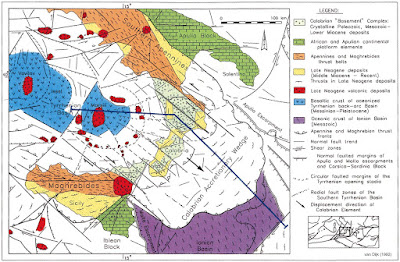Monday's post, about the difficulty of defining the term race, prompted a loyal reader of Skeptophilia to ask if I'd ever heard of the Irish Travellers.
I asked if they were Romani (colloquially referred to as Gypsies, although that term is now usually considered a slur) who live in Ireland. She said no -- the story is more interesting than that.
And indeed it is.
The Travellers, or Mincéirí, are a generally nomadic group of people whose origins are shrouded in mystery, but who by some accounts have lived on the island as an identifiable group since at least the twelfth century C.E. In the Irish language they're called An Lucht Siúil -- "the walking people." They have a distinct style of dress, including emphasis on beadwork and embroidery, and their own sets of tunes and songs. They even speak a separate language -- Shelta -- which contains words from Irish and English, as well as a number of what appear to be neologisms. It's not been well-studied, because as a group with a history of persecution, the Travellers are (understandably) reluctant to share their knowledge with outsiders. What's known of it, though, seems to be mutually unintelligible to both speakers of Irish and English, and to qualify as an actual separate language (i.e., not a dialect or a pidgin).
Despite the fact that they've experienced discrimination, and the difficulty of maintaining their lifestyle in the face of an increasingly homogenized, technological world, there are still over thirty thousand people in Ireland who self-identify as Travellers.
Their origins are a mystery. There are Romani in Ireland, just as there are in most European countries; although they occupy a similar societal niche as the Travellers, they seem to be unrelated. (Genetic studies of Romani have shown fairly conclusively that they are an Indo-Aryan people who made their way into Europe something like a thousand years ago from what is now the Indian state of Rajasthan.) An analysis of the genetics of the Travellers has found that they are essentially Irish in origin, although have been reproductively isolated from the rest of the population since at least the eleventh century C.E., and possibly before. This study concluded that while related, the Travellers are as distinct from the rest of the Irish as the Icelanders are from the Norwegians.
How could this have happened? One hypothesis -- and it's no more than that -- is that the ancestors of the Travellers belonged to an itinerant profession that was looked down upon and segregated not because of genetic unrelatedness, but because of social stigma (similar to the Dalits of India). Like many people with a history of oppression, they are struggling to maintain their language, culture, and identity, and have finally achieved recognition by the Irish government as a distinct ethnic group worthy of protection.
This group highlights once again the difficulty of defining what we mean by race or ethnicity. Genetically, the Travellers are very similar to the Irish, and seem to share a common origin some time in the last millennium. Their language, Shelta, probably started out being a pidgin of Old Gaelic and Middle English, but now (like the Kreyòl language of Haiti) has evolved and strengthened into an actual complex and complete language. Culturally, they're distinct enough to warrant governmental recognition and at least some efforts toward protection and support.
This is hardly the only such case known. Here in the United States, we've got the Melungeons of eastern Tennessee and Kentucky and southwestern Virginia, the Brass Ankles of South Carolina, and the Redbones of southwestern Louisiana, all of which seem from genetic studies to be "tri-racial isolates" descended from a combination of sub-Saharan Africans, Native Americans, and western European ancestors, but who -- like the Travellers -- have been separate long enough to develop their own distinct cultures. My mother's people, the Cajuns, are another such case; they're predominantly of Nova Scotian French ancestry, but have a good admixture of Indigenous Canadian, French Creole, Spanish, and German ancestry, and by virtue of being isolated for a good two centuries, have developed a unique culture and language. My having learned French as a child from my older relatives means I have a strong Cajun accent when I speak it. When I've visited Québec, I've often found it difficult to understand and be understood -- another example, to pilfer a quip from Oscar Wilde, of two countries separated by the same language.
So there you have it. Thank you to the reader who suggested the topic; I always love it when my research for this blog results in my learning something I hadn't known about. I find human genetics, ethnicity, language, and migration patterns endlessly fascinating -- explaining my choice of a field for my master's degree, and the frequency with which the topic shows up here at Skeptophilia. And I suppose we shouldn't be surprised that the truth is more complex than our desire to pigeonhole reality would suggest. As Ursula LeGuin put it, "I never knew anybody who found life simple. I think a time or a life looks simple only if you leave out the details."
.jpg)











